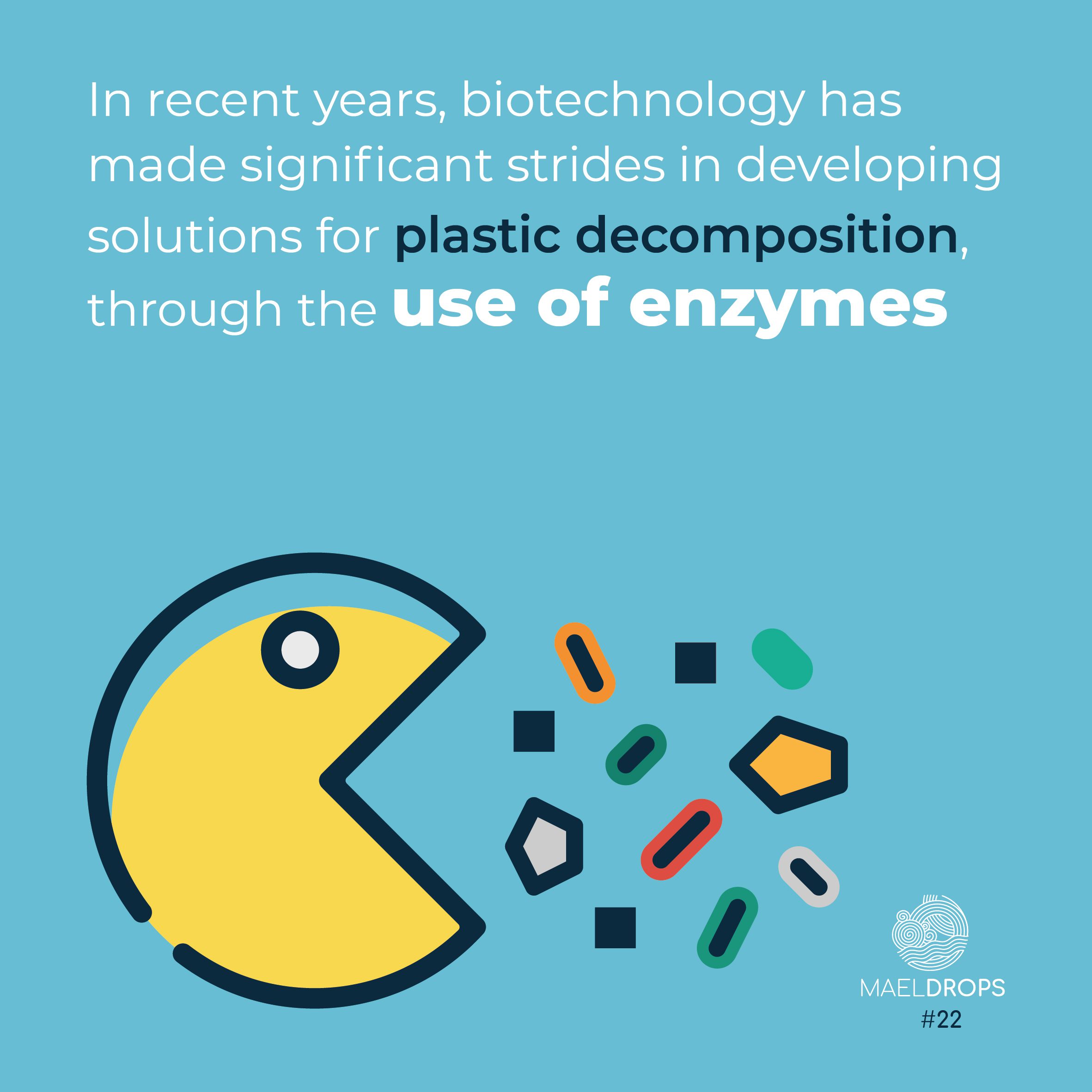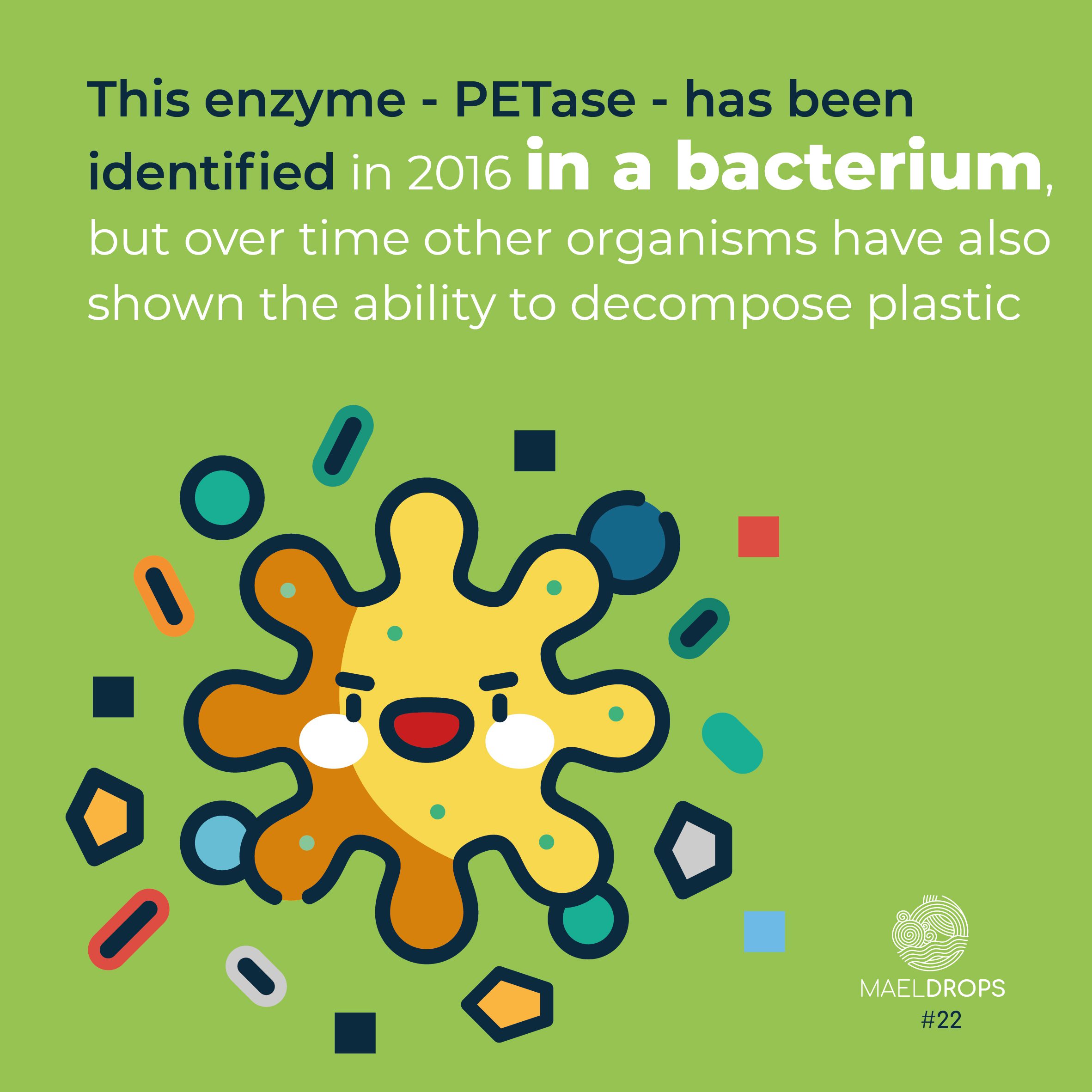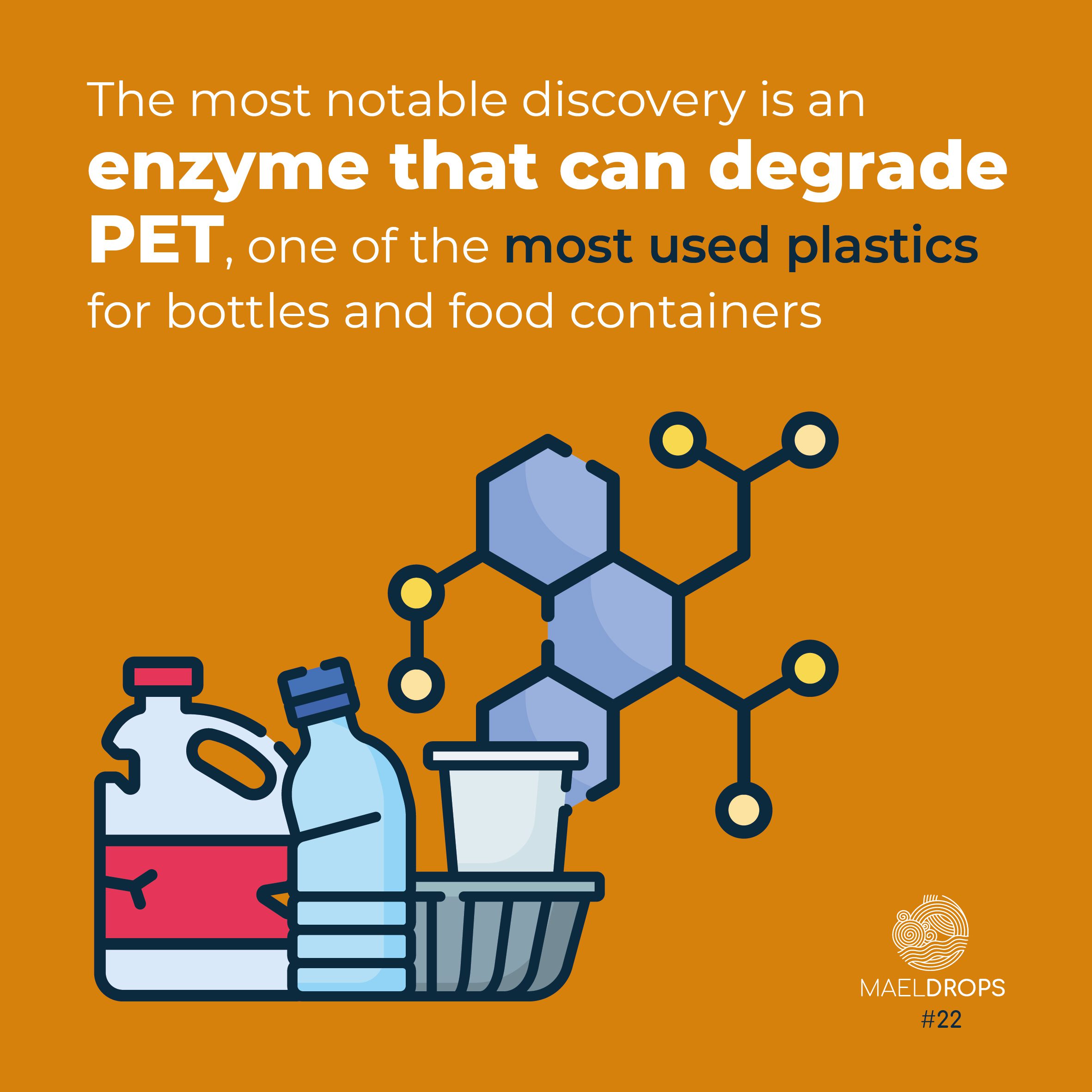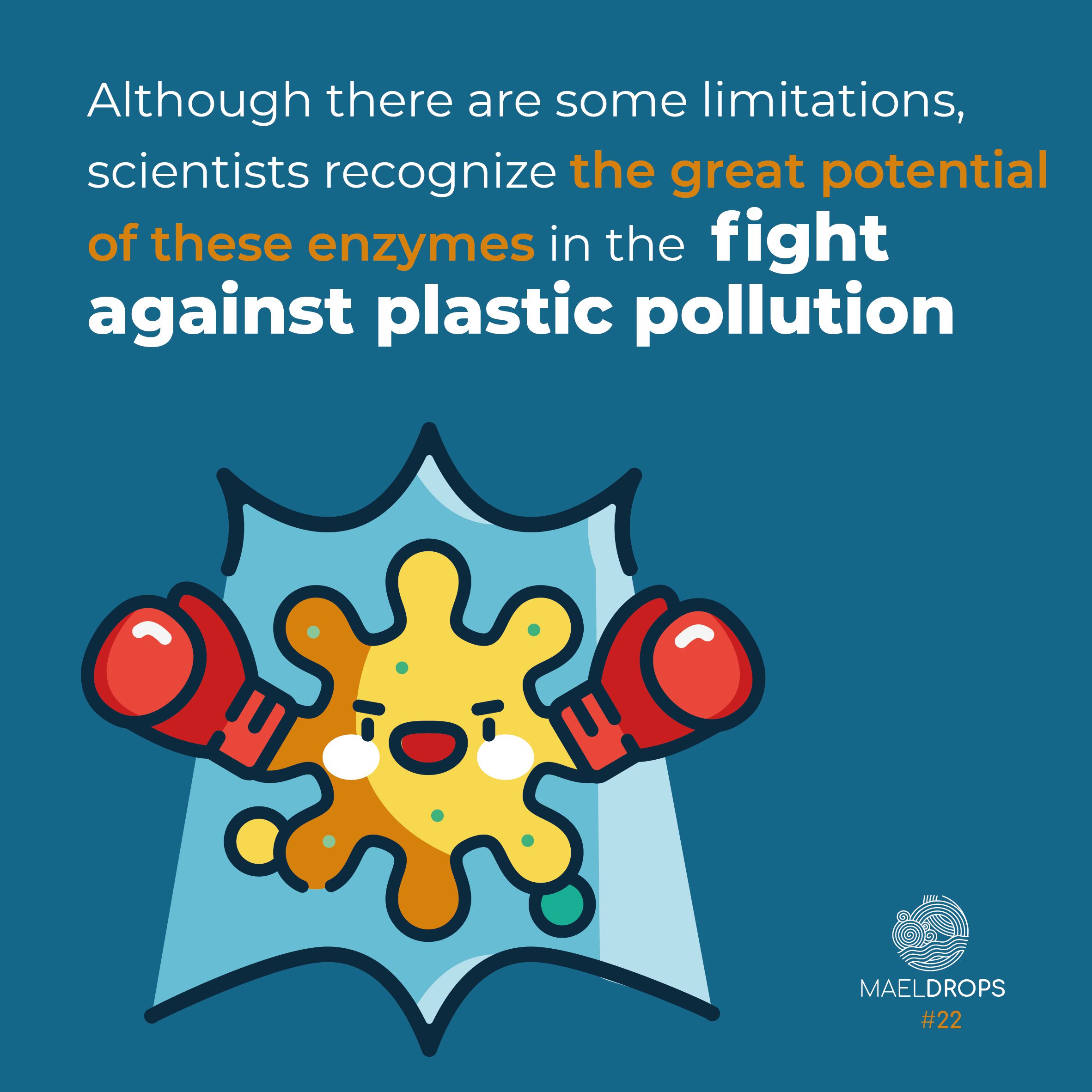MAELDrop #22 | Enzymes for plastic degradation

There are numerous strategies to combat plastic pollution in marine and terrestrial environments, and all are essential. Efforts must be concentrated on material management, recycling, and removal. Particularly promising advancements come from biotechnology, which has recently achieved significant progress in developing enzyme-based solutions for plastic decomposition.
The most notable discovery involves an enzyme called PETase, identified in 2016 by a team of Japanese researchers in the bacterium Ideonella sakaiensis. PETase can degrade polyethylene terephthalate (PET), one of the most commonly used plastics for bottles and food containers. Scientists have engineered the enzyme to increase its efficiency and speed of plastic decomposition.
Over time, other organisms have also shown the ability to decompose plastic, including some invertebrates. Research has focused on improving their catalytic abilities and thermal stability. Among the main limitations to the application of these enzymes is that they are currently too slow to function at an industrial level and require physical-chemical conditions that may not be easily replicable on a large scale.
However, scientists recognize the great potential of these enzymes and enzymatic complexes in the fight against plastic pollution. Additionally, some studies suggest they could also help in the degradation of microplastics.



